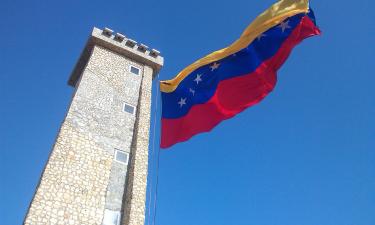To Pay or Not to Pay: a Developing Countries' Dilemma
The South owes $25 billions to the North. Social activists say debt is not legitimate and mere usury.
"We will honor our foreign obligations". This is the first aim every developing country's leader makes public not to disturb markets' confidence. However, last years hardening on financial conditions makes almost impossible for them to meet debt payments either to private holders or to multinational lenders.
According with Eric Hobsbawm's book "The short twentieth century 1914 - 1991" world's financial system was up to collapse early in the 1980's, when Mexico and other Latin American countries defaulted on their foreign debts. Fortunately for the bad lender bankers, they did not do it all at once. Therefore, the crisis could be sorted out.
Today, the scenario is quite similar. The three giants of debt: Argentina, Brazil and Mexico, face increasing difficulties meet foreign obligations. The first one already defaulted to private holders in January 2002 and badly agreed with the IMF and the World Bank a short-term deal that avoided serious problems to both lenders, as Argentina is their main client.
Quickly after Argentina's default, the International Monetary Fund approved a $ 30 billion aid program to Brazil and rescued Uruguay from a certain collapse. However, the leaders of both Mercosur countries openly express they cannot meet payments at such high rates. The last one who did it was the new President of Ecuador, Lucio Gutierrez, on his first speech as Head of State.
"The so-called financial debt has already been paid many times", says Beverly Keene, Argentine representative at Porto Alegre's World Social Forum. "They owe us the social, ecological and democratic debt", she adds. Pure mathematics: taking into account payments made in respect of interests on loans, each country has already paid several times the capital received from creditors.
Lenders do not care about these figures if countries keep on paying them. Many Governments in Africa and Latin America privilege debt payments to internal obligations as social assistance, medicines, food, etc. For instance, in Sub-Saharan Africa, countries expend four more times in debt payments than in health and education.
However, the IMF, the World Bank and others turn very nervous when countries like Mexico in 1982, Peru between 1983 and 1991 and Argentina in 1989 and 2002 decide not to keep on wiring to their home offices in Washington. What a problem for them! How are they supposed to keep on financing deficits in which national treasuries chronically fall to pay them?
This is the vicious circle of debt. Until a firm decision is not adopted on this issue, which means a strong release of capital, this problem will systematically affect countries and lenders. But business is business and debt payments are one of the most profitable of them...for speculators, of course.
Hernan Etchaleco PRAVDA.Ru Argentina
Subscribe to Pravda.Ru Telegram channel, Facebook, RSS!




